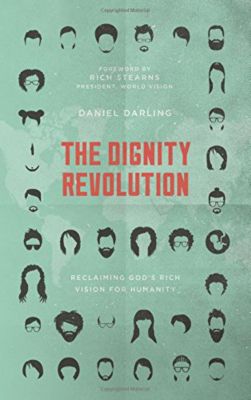
By Daniel Darling
That day, seemingly impossible to see just a few months ago, seems to be here. In America, COVID restrictions are slowing falling. The Centers for Disease Control and Prevention is issuing new guidelines. Major departments stores and restaurant chains are easing up on their mask requirements. And churches are cautiously returning to pre-COVID realities.
And just as the new practices were controversial and often divisive at the beginning of this pandemic, when wearing a mask was necessary to avoid spreading a lethal virus and keeping away from friends and loved ones was the prudent way to protect them from harm, so it will be controversial and divisive to peel back habits we’ve developed for more than a year.
Even if you see the wisdom and feel the relief of removing your mask after vaccination, it probably seems a little weird to show your face in public spaces where we got used to hiding behind fabric. And if you are on the cautious side, even as you read the science and data that shows vaccinated people don’t spread COVID, this new reality will get even more difficult to navigate.
The winding down of this pandemic, a historic and life-altering season our grandkids will only marvel over, will require some grace toward each other, the adoption of new rhythms, and, above all, a renewal of a basic Christian doctrine.
The same theology that caused us to take precautions during the pandemic should now drive us to reconnect with those we've avoided. — @dandarling Click To TweetChristians believe every human has value and worth because every human is made in the image of God. Around 9 in 10 evangelicals (89%) say their political views are informed by their belief that every human has equal and inherent dignity, according to a 2018 Lifeway Research study. This is why we took precautions in the first place: masking our faces, keeping our distance, cancelling big gatherings, and a host of other precautions.
As we look back, we will be able to evaluate which of these massive, society-altering steps were effective at stopping the spread of a dangerous virus and which were tragically unnecessary. But the motivation for most was that if one life was saved—the life of an elderly person, the life of a immune-compromised person, the life of anyone in danger of death—these sacrifices were worth it.
Yet it is that same theology—the whole personhood of every human—that should drive us to reconnect with those we’ve avoided. One of the negative side effects of this global pandemic is we have trained ourselves to see people not as whole, complicated humans, but as walking threats to our health. But your neighbor is not a virus. Your friend is not reduced to the potential germs that may emanate from his or her body.
One of the negative side effects of this global pandemic is that we have trained ourselves to see people not as whole, complicated humans, but as walking threats to our health. — @dandarling Click To TweetA result of this grand social experiment we endured—sequestering in our homes and engaging the world via mediated technology, the flatting of humanity through screens and words—is that we have awakened to a fresh awareness of the necessity of human community. The words of Genesis 2:18 shout to us in our loneliness and despair: It is not good for man to be alone. We are embodied people, created for interaction with others.
This interaction, of course, is risky even in normal times. A hug, a handshake, an unmuffled cough could spread an unknown disease or virus. Obviously, we shouldn’t engage recklessly. Staying home when sick is not a bad new normal for the workplace. And yet we should also consider the risks of zero human interaction, the way our minds and hearts can shrivel, and how seclusion can easily turn us into frustrated, online rage-bots.
This is why we must work to get back to our gatherings, our groups, our parties, our live worship. And we must also resist the urge to reduce our fellow humans to that thing about them we least desire: a potential virus coursing their bodies, a political opinion we detest, a habit that rankles our sensibilities. People are not the sum total of their politics. People are not the sum total of their stupid social media posts. People are not the sum total of their germs that may lurk on the surface of their skin.
We must resist the urge to reduce our fellow human beings to that thing about them we least desire: a potential virus coursing their bodies, a political opinion we detest, a habit that rankles our sensibilities. — @dandarling Click To TweetIn Jesus we see this kind of love for the whole person. He didn’t see the woman at the well only for her checkered sexual history or her misplaced trust in a false religion. He saw a whole person, with hurts and pains, with dreams and desires, one who was thirsty for living water that could make her whole again.
He didn’t see Peter only as the impetuous fishermen overeager to prove his loyalty. He saw a future apostle, a whole person whose rough edges could gradually succumb to the polishing edge of the Spirit’s sanctifying work. And so it is that Jesus doesn’t see us merely as our flaws or our gifts, but as whole people, objects of His saving love.
As we venture back into normalcy, let’s try to see others, not as potential risks to our physical and spiritual health, but as people crafted in the image of the Almighty. — @dandarling Click To TweetSo as we venture back into what we think will be normalcy, as we slowly pull back our masks, as we move a little closer to our friends, as we once again engage in the healthy habits of human life, let’s try to see others, not as potential risks to our physical and spiritual health, but as people crafted in the image of the Almighty.

Dan Darling
Dan is the director of the Land Center for Cultural Engagement at Southwestern Seminary. He is the bestselling author of several books, including Agents of Grace.








